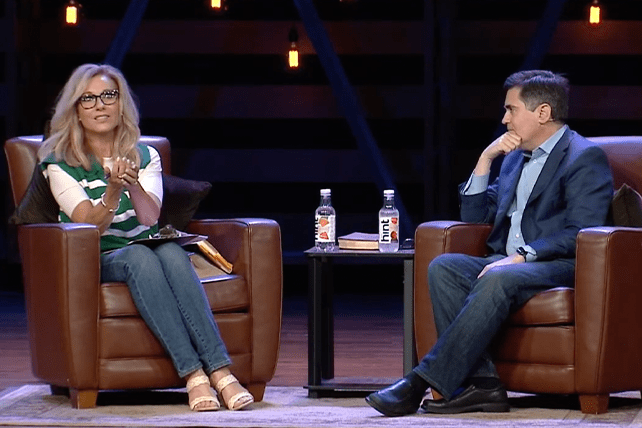Discussing the crisis of faith occurring among many people who were raised within the evangelical movement, Russell said that, in recent times, the people who come to him expressing doubt are rarely having difficulty believing in miracles or accepting Christian morality. Rather, they been disillusioned by the hypocritical behavior among leaders within the evangelical movement, particularly when it comes to prioritizing political power over Christian ethics.
Describing people who “were real-deal committed to the gospel and to the Scriptures,” Russell said that many have begun to question, “Wait, has this all just been a means to an end? Is this really just about something else?”
“And that’s what’s really disturbing to them,” Russell said. “A lot of the people [about whom] we say ‘they’re deconstructing’—which can mean any number of things—but even the people who are really what we think of as deconstructing, don’t give up on them.”
Russell continued, “I mean, a lot of times they’re going through this process of sorting through and saying, ‘Was this real or not?’ And a lot of them are going to conclude, ‘Yes.’ But it takes a process sometimes for them to get there.”
“There’s a way that we can overreact when somebody is going through those dark nights of the soul, in which we can respond in such a way that actually would not give somebody a path to come back if the Lord leads them to,” Russell went on to say, characterizing such an overreaction as “a severe mistake.”
Beth later asked Russell about the role political polarization has played in the dilemmas of the evangelical movement today.
“We’re at a time when politics is asked to bear a weight that it cannot support when it comes to your entire identity,” Russell said. “It’s not just that people get exhausted and burned out, because you’re having to—political scientists call it ‘identity vigilance.’ You’re having to look around [and ask], ‘Am I still part of the team, and does everybody know that I’m part of the team?’ That’s exhausting.”
“But it’s also the case that when people actually do encounter people who are in the out-group, whatever that out-group is, and they’re not villains, they start to see them as a human being. That can be even more disorienting to people,” Russell continued. “When you think, ‘The people who disagree with me are supervillains in a lair plotting to destroy me,’ and then you find out that’s not true, it can just completely disorient a person.”
“But it’s so rare because we’re almost never in a situation where we’re even together. People are sorting out into zip codes, they’re sorting out into all of these different places,” Russell said, noting that even most evangelical churches are politically homogeneous.
This lack of interpersonal contact across diverse viewpoints creates an opportunity for “conflict entrepreneurs,” said Russell. “There are people for whom it is in their interest to keep you in a state of siege and conflict. And that’s especially true in a social media era, where people can build a platform not by growing a church or by something else. They can build a platform by anger.”
“Well, that leaves you burned out, and it also leaves you in a place where you can’t recognize yourself anymore,” Russell said.
Russell Moore and Beth Moore Take Audience Questions
After discussing Russell’s new book, Russell and Beth took questions from those in the audience.

